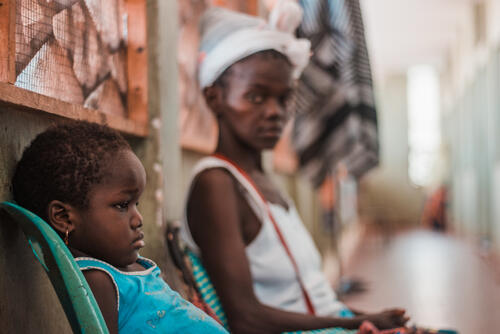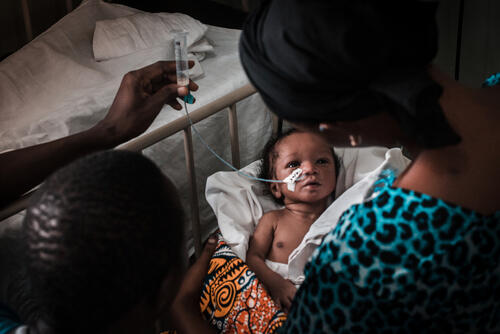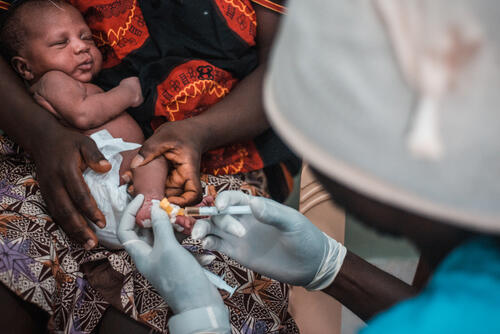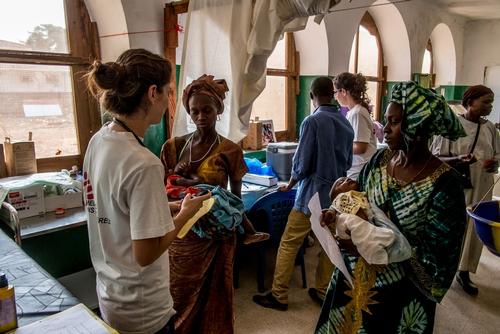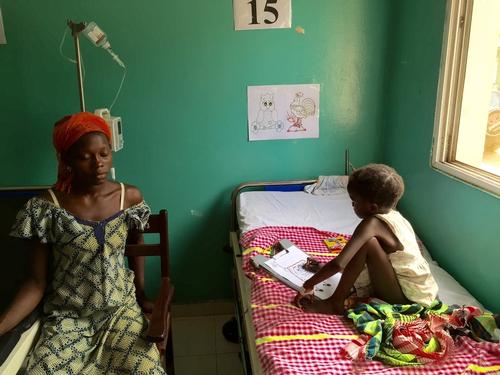Amadou, Janu and Sadjo's baby were all in a serious condition when they were admitted to the paediatric emergency and intensive care services supported by MSF at Simão Mendes National Hospital (HNSM) in Bissau. Today they are out of danger and preparing to return home.
For other children, who arrive too late or in an even more critical state, the result is sometimes less fortunate. This is the harsh reality of emergency services and intensive care, against which the medical teams from MSF and the Ministry of Health fight daily, and with fervour.
Thanks to their knowledge and commitment, in most cases these doctors and nurses enable life to resume its normal course – as in the case of Sadjo’s baby, five-month old Amadou and four-year-old Janu.
Sadjo’s baby, 13 days old
Sadjo gave birth to a girl by caesarean section in the maternity ward of the national hospital. On the same day, the baby was transferred to the neonatal intensive care unit in a state of severe respiratory distress.
MSF’s medical team suspected sepsis, a serious and widespread infection caused by meconium aspiration (the absorption of amniotic fluid infected with meconium, the first stool of the foetus).
After three days of observation, the baby’s health did not improve: she continued to present fever, swelling of the legs and spasms. A lumbar puncture was used to diagnose an infection of the nervous system, and the appropriate antibiotic treatment was prescribed. Her health then improved day by day.
Sadjo hopes to take her daughter home soon and finally be able to give her a name.
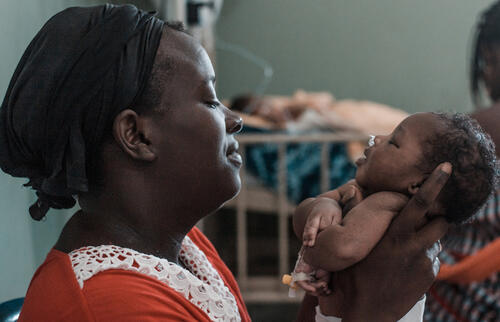
Amadou, 5 months old
"The child had a fever and it was increasingly difficult for him to breathe," Amadou's father explained. "With each inhalation, his ribcage sank."
Amadou was suffering from bronchiolitis caused by an acute viral infection that affects babies aged two to eight months. His respiratory distress was severe and he was taken to the observation room at Simão Mendes National Hospital, where it was decided he should be transferred to the paediatric intensive care unit or the paediatric inpatient ward.
However, due to a lack of space in the first and the lack of oxygen therapy equipment in the second, he was, exceptionally, kept in the observation room for four days instead of the usual 24 hours. But he was given oxygen, continued to eat and was able to avoid any further complications.
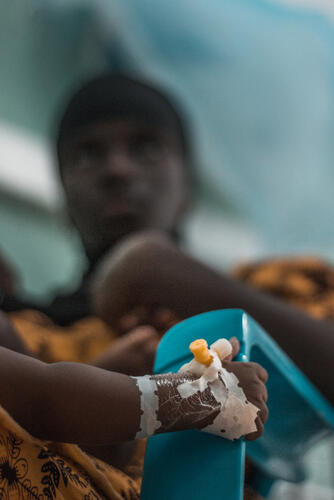
Janu, 4 years old
"She stopped eating, cried a lot and complained of pain, as if she had been pierced by a knife in her chest," says Janu's grandmother.
Her granddaughter had severe pneumonia with a significant pleural effusion (excess fluid around the lung), which can be lethal if left untreated.
After an initial consultation at a hospital in the city, the girl was referred to the paediatric ward of Simão Mendes National Hospital.
The MSF team there was able to drain the liquid and treat her pneumonia. After 15 days in the paediatric intensive care unit, Janu was transferred to the paediatric ward run by the Ministry of Health, from where she will soon be discharged.
